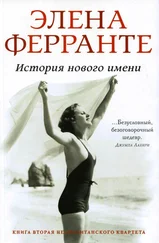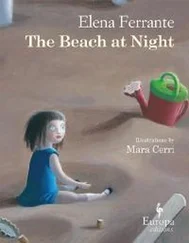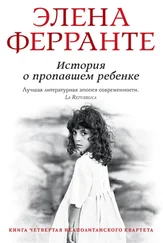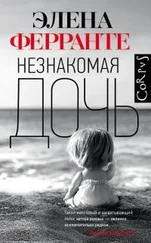We were in a small restaurant where the owner, gray-haired, tall, very thin, welcomed Roberto with respectful amiability. It’s all ready, he said, indicating in a complicit tone a small room where a long table could be glimpsed, with a number of guests sitting and talking animatedly. So many people, I thought, and my shabby appearance made me uneasy; I didn’t think of myself as having charms that would smooth relationships with strangers. Also, at first glance the girls all seemed young, pretty, cultured feminine types like Angela, who knew how to shine with soft poses, silky voices. The men were a minority, two or three, contemporaries of Roberto’s or slightly older. Their gazes focused on Giuliana, beautiful, cordial, and when Roberto introduced me, their attention lasted only a few seconds, I was too frumpy.
We sat down, and I ended up a long way from Roberto and Giuliana, who had found seats next to each other. I perceived immediately that none of those young people were there for the pleasure of being together. Behind the good manners were tensions, enmities, and if they could have they would surely have spent the evening in another way. But already while Roberto was exchanging the first remarks, an atmosphere was created similar to what I had seen among the parishioners in the church in Pascone. Roberto’s body—voice, gestures, gaze—began to act as a glue, and, seeing him among those people who loved him as I did, and loved each other only because they loved him, I, too, suddenly felt part of an inevitable bonding. What a voice he had, what eyes: Roberto, now, among a lot of people, seemed much more than what he had been with Giuliana, with me, in the hours of touring Milan. He became what he had been when he addressed that remark to me (“You seem like a person who always thinks she’ll be bored but then never is”), and I had to admit that it hadn’t been a privilege of mine, he had the gift of showing others more than they were able to see.
People ate, laughed, discussed, interrupted one another. They had grand themes at heart, of which I understood very little. Today I can say only that they talked about injustice, hunger, poverty, what to do in the face of the ferocity of the unjust person who takes for himself, taking away from others, what is the right way to behave. I could sum up more or less like this the discussion that rebounded in a lightly serious way from one end of the table to the other. Does one resort to the law? And if the law fosters injustice? And if the law itself is injustice, if the violence of the state safeguards it? Eyes shone with tension, the always erudite words sounded sincerely passionate. They debated a lot, knowledgeably, eating and drinking, and it struck me that the girls were even more passionate than the boys. I was familiar with the argumentative voices that came from my father’s study, my sarcastic discussions with Angela, the fake passion that I sometimes displayed at school to please the teachers when they advocated sentiments that they themselves didn’t feel. Whereas those girls, who probably taught or would teach at the university, were true and combative and compassionate. They cited groups or associations that I had never heard of, some had just returned from distant countries and recounted horrors they knew through direct experience. A dark-haired young woman named Michela immediately stood out for her vibrant words, she sat right opposite Roberto, and was naturally the Michela who obsessed Giuliana. She brought up an episode of abuse that had happened maybe before her eyes, I don’t remember where, or maybe I don’t feel like remembering. It was an episode so terrible that at one point she had to stop speaking to keep from crying. Giuliana up till then had been silent, she ate listlessly, her face dulled by the weariness of the evening and the day of touring. But when Michela’s long tirade began, she dropped her fork on the plate and stared at her.
The girl—a coarse face, a bright gaze behind large eyeglasses with thin frames, very red, full lips—had begun speaking to the table but now was addressing only Roberto. It wasn’t an anomaly, they all tended to do that, they unconsciously recognized in him the role of collector of individual speeches that, synthesized by his voice, became the conviction of all. But while the others every so often remembered the listeners, Michela appeared to care only about his attention, and the more she talked, the more Giuliana—I saw—withered. It was as if her face were wasting away until it was only transparent skin, displaying in advance what it would become when illness and old age arrived to ruin it. What was crippling her at that moment? Jealousy probably. Or maybe not, Michela wasn’t doing anything that could make her jealous, no gesture, such as Angela had laid out for me, illustrating the strategy of seduction. Probably Giuliana was simply disfigured by the suffering caused by the quality of Michela’s voice, the efficacy of her phrases, the ability with which she could pose questions alternating examples with generalizations. When her face seemed to be utterly drained of life, a harsh, aggressive voice came out, with a strong dialectal coloring:
“If you stabbed him, you’d resolve everything.”
I knew right away that the words were out of place in that climate and I’m sure Giuliana knew it, too. But I’m equally certain that she said those words because they were the only ones that came to mind to cleanly cut the long thread of Michela’s words. There was silence, Giuliana realized she’d said the wrong thing, and her eyes turned glassy, as if she were about to faint. She tried to take her distance from herself by laughing nervously, she said to Roberto, now in a more controlled Italian:
“Or at least that’s what they’d do where you and I come from, no?”
Roberto pulled her to him, circling her shoulders, kissed her on the forehead, and began a speech that step by step erased the trivializing effect of his fiancée’s words. They’d do that not only where we come from, he said, but everywhere, because it’s the easiest answer. But naturally he wasn’t in favor of easy answers, none of the young people at that table were. And Giuliana, too, was quick to say, again almost in dialect, that she was against a violent response to violence, but she got all tangled up—I felt great pity for her—and immediately stopped talking, they were all listening to Roberto. To injustice, he said, you must give a firm, stubborn response: you do this to your neighbor and I tell you you mustn’t do it and if you continue to do it I will continue to oppose it, and if you crush me with your force I will rise up again, or if I can’t rise up anymore others will, and still others. He stared at the table as he spoke, and then suddenly he looked up, he looked them in the face one by one with enchanting eyes.
In the end everyone was convinced that that was the right reaction, Giuliana herself, me. But Michela—and I perceived the surprise among the group—flared up, exasperated, she exclaimed that you can’t respond to an unjust force with weakness. Silence: exasperation, even slight exasperation, was not envisaged at that table. I looked at Giuliana, she was staring angrily at Michela, I was afraid she would lash out at her again, even though the few words of her presumed rival seemed close to her thesis of stabbing. But Roberto was already responding: the just can only be weak, they have courage without force. And suddenly a few lines I’d read recently came to mind, I mixed them up with others, I said softly, almost without intending to: they have the weakness of the fool who stops offering meat and fat to God, who is more than sated, and gives it to his neighbor, to the widow, the orphan, the stranger. That’s all that came out of my mouth, in a calm, even slightly ironic tone. And since my words were immediately taken up approvingly by Roberto, using and developing the metaphor of foolishness, everyone liked them, except perhaps Michela. She gave me an interested glance, and then for no reason Giuliana laughed, a noisy laugh.
Читать дальше

![Элена Ферранте - История о пропавшем ребенке [litres]](/books/32091/elena-ferrante-istoriya-o-propavshem-rebenke-litres-thumb.webp)






![Элена Ферранте - Дни одиночества [litres]](/books/404671/elena-ferrante-dni-odinochestva-litres-thumb.webp)



